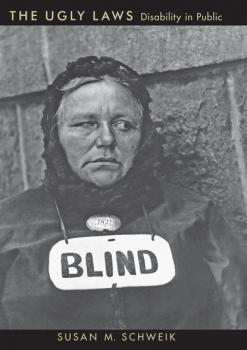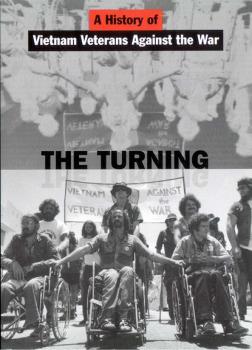ТОП просматриваемых книг сайта:
Историческая литература
Различные книги в жанре Историческая литература, доступные для чтения и скачиванияАннотация
Ahmad ibn Hanbal (d. 241/855), renowned for his profound knowledge of hadith—the reports of the Prophet’s sayings and deeds—is a major figure in the history of Islam. Ibn Hanbal was famous for living according to his own strict interpretation of the Prophetic model and for denying himself even the most basic comforts in a city then one of the wealthiest in the word, and despite belonging to a prominent family. His piety and austerity made him a folk hero, especially after his principled resistance to the attempts of two Abbasid caliphs to force him to accept rationalist doctrine. His subsequent imprisonment and flogging became one of the most dramatic episodes of medieval Islamic history. Ibn Hanbal’s resistance influenced the course of Islamic law, the rise of Sunnism, and the legislative authority of the caliphate. tells the formidable life tale of one of the most influential Muslims in history.Virtues of the Imam Ahmad ibn Hanbal is a translation of the biography of Ibn Hanbal penned by the Baghdad preacher, scholar, and storyteller Ibn al-Jawzi (d. 597/1201). Volume One presents the first half of the text, offering insights into Ibn Hanbal’s childhood, education, and adult life, including his religious doctrines, his dealings with other scholars, and his personal habits. Set against the background of fierce debates over the role of reason and the basis of legitimate government, Virtues of the Imam Ahmad ibn Hanbal tells the formidable life tale of one of the most influential Muslims in history.A bilingual Arabic-English edition.
Информация о книге
Автор произведения Ibn al-Jawzi
Аннотация
As thousands of wives and children joined American servicemen stationed at overseas bases in the years following World War II, the military family represented a friendlier, more humane side of the United States' campaign for dominance in the Cold War. Wives in particular were encouraged to use their feminine influence to forge ties with residents of occupied and host nations. In this untold story of Cold War diplomacy, Donna Alvah describes how these “unofficial ambassadors” spread the United States’ perception of itself and its image of world order in the communities where husbands and fathers were stationed, cultivating relationships with both local people and other military families in private homes, churches, schools, women's clubs, shops, and other places. Unofficial Ambassadors reminds us that, in addition to soldiers and world leaders, ordinary people make vital contributions to a nation's military engagements. Alvah broadens the scope of the history of the Cold War by analyzing how ideas about gender, family, race, and culture shaped the U.S. military presence abroad.
Аннотация
Shares wrenching accounts of the everyday violence experienced by emancipated African Americans Well after slavery was abolished, its legacy of violence left deep wounds on African Americans’ bodies, minds, and lives. For many victims and witnesses of the assaults, rapes, murders, nightrides, lynchings, and other bloody acts that followed, the suffering this violence engendered was at once too painful to put into words yet too horrible to suppress. In this evocative and deeply moving history Kidada Williams examines African Americans’ testimonies about racial violence. By using both oral and print culture to testify about violence, victims and witnesses hoped they would be able to graphically disseminate enough knowledge about its occurrence and inspire Americans to take action to end it. In the process of testifying, these people created a vernacular history of the violence they endured and witnessed, as well as the identities that grew from the experience of violence. This history fostered an oppositional consciousness to racial violence that inspired African Americans to form and support campaigns to end violence. The resulting crusades against racial violence became one of the political training grounds for the civil rights movement.
Аннотация
Finalist for the 2013 National Jewish Book Award, American Jewish Studies For centuries, Jews were one of the few European cultures without any official public theatrical tradition. Yet in the modern era, Jews were among the most important creators of popular theater and film–especially in America. Why? In Theatrical Liberalism, Andrea Most illustrates howAmerican Jews used the theatre and other media to navigate their encounterswith modern culture, politics, religion, and identity,negotiating a position for themselves within and alongside Protestant Americanliberalism by reimagining key aspects of traditional Judaism astheatrical. Discussing works as diverse as the Hebrew Bible, TheJazz Singer, and Death of a Salesman—among many others—Most situates Americanpopular culture in the multiple religious traditions that informed theworldviews of its practitioners. Offering a comprehensive history of the role of Judaism in thecreation of American entertainment, Theatrical Liberalism re-examines the distinction between the secular and the religious in both Jewish and American contexts, providing a new way of understanding Jewish liberalism and its place in a pluralist society. With extensive scholarship and compelling evidence, Theatrical Liberalism shows how the Jewish worldview that permeates American culture has reached far beyond the Jews who created it.
Аннотация
Winner of South Africa’s top literary prize, the Alan Paton Award, The UnlikelySecret Agent tells the thrilling true story of one woman’s struggle against theapartheid system. It is 1963. South Africa is in crisis and the white state isunder siege. One August 19th, the dreaded Security Police descendedon Griggs bookstore in downtown Durban and arrest Eleanor, the white daughterof the manager. They threaten to “break her or hang her” if she does not leadthem to her lover, “Red” Ronnie Kasrils, who is wanted on suspicion ofinvolvement in recent acts of sabotage, including the toppling of electricitypylons and explosions at a Security Police office in Durban. But Eleanor has her own secret to conceal: she is, like Ronnie, aclandestine agent for the underground ANC and must protect her handlers andRonnie at all costs. Astutely, she convinces the police that she is on theverge of a nervous breakdown and, still a prisoner, is relocated to a mentalhospital in Pietermaritzburg for assessment. It is here that she plots herescape. This remarkable story of a young woman’s courage and daring at a timeof increasing repression in apartheid South Africa is told here for the firsttime with great verve and élan by Eleanor’s husband, Ronnie Kasrils, whoeventually became South Africa’s Minister of Intelligence Services in 2004.
Аннотация
In the late-nineteenth and early-twentieth centuries, municipallaws targeting «unsightly beggars» sprang up in cities across America. Seeming to criminalize disability and thus offering a visceral example of discrimination, these “ugly laws” have become a sort of shorthand for oppression in disability studies, law, and the arts.In this watershed study of the ugly laws, Susan M. Schweik uncovers the murky history behind the laws, situating the varied legislation in its historical context and exploring in detail what the laws meant. Illustrating how the laws join the history of the disabled and the poor, Schweik not only gives the reader a deeper understanding of the ugly laws and the cities where they were generated, she locates the laws at a crucial intersection of evolving and unstable concepts of race, nation, sex, class, and gender. Moreover, she explores the history of resistance to the ordinances, using the often harrowing life stories of those most affected by their passage. Moving to the laws’ more recent history, Schweik analyzes the shifting cultural memory of the ugly laws, examining how they have been used—and misused—by academics, activists, artists, lawyers, and legislators.
Информация о книге
Автор произведения Susan M. Schweik
Аннотация
The anti-Vietnam War movement in the United States is perhaps best remembered for its young, counterculture student protesters. However, the Vietnam War was the first conflict in American history in which a substantial number of military personnel actively protested the war while it was in progress. In The Turning , Andrew Hunt reclaims the history of the Vietnam Veterans Against the War (VVAW), an organization that transformed the antiwar movement by placing Vietnam veterans in the forefront of the nationwide struggle to end the war. Misunderstood by both authorities and radicals alike, VVAW members were mostly young men who had served in Vietnam and returned profoundly disillusioned with the rationale for the war and with American conduct in Southeast Asia. Angry, impassioned, and uncompromisingly militant, the VVAW that Hunt chronicles in this first history of the organization posed a formidable threat to America's Vietnam policy and further contributed to the sense that the nation was under siege from within. Based on extensive interviews and in-depth primary research, including recently declassified government files, The Turning is a vivid history of the men who risked censures, stigma, even imprisonment for a cause they believed to be «an extended tour of duty.»
Аннотация
In the summer of 1816, the state of Pennsylvania tried fifty-nine German-Americans on charges of conspiracy and rioting. The accused had, according to the indictment, conspired to prevent with physical force the introduction of the English language into the largest German church in North America, Philadelphia’s Lutheran congregation of St. Michael’s and Zion. The trial marked the climax of an increasingly violent conflict over language choice in Philadelphia’s German community, with members bitterly divided into those who favored the exclusive use of German in their church, and those who preferred occasional services in English. At trial, witnesses, lawyers, defendants, and the judge explicitly linked language to class, citizenship, patriotism, religion, and violence. Mining many previously unexamined sources, including German-language writings, witness testimonies, and the opinions of prominent legal professionals, Friederike Baer uses legal conflict as a prism through which to explore the significance of language in the early American republic. The Trial of Frederick Eberle reminds us that debates over language have always been about far more than just language. Baer demonstrates that the 1816 trial was not a battle between Americans and immigrants, or German-speakers and English-speakers. Instead, the individuals involved in the case seized and exploited English and German as powerful symbols of competing cultural, economic, and social interests.
Аннотация
Are Americans in denial about the costs of the War on Terror? In The Real Price of War , Joshua S. Goldstein argues that we need to face up to what the war costs the average American—both in taxes and in changes to our way of life. Goldstein contends that in order to protect the United States from future attacks, we must fight—and win—the War on Terror. Yet even as President Bush campaigns on promises of national security, his administration is cutting taxes and increasing deficit spending, resulting in too little money to eradicate terrorism and a crippling burden of national debt for future generations to pay. The Real Price of War breaks down billion-dollar government expenditures into the prices individual Americans are paying through their taxes. Goldstein estimates that the average American household currently pays $500 each month to finance war. Beyond the dollars and cents that finance military operations and increased security within the U.S., the War on Terror also costs America in less tangible ways, including lost lives, reduced revenue from international travelers, and budget pressures on local governments. The longer the war continues, the greater these costs. In order to win the war faster, Goldstein argues for an increase in war funding, at a cost of about $100 per household per month, to better fund military spending, homeland security, and foreign aid and diplomacy.Americans have been told that the War on Terror is a war without sacrifice. But as Goldstein emphatically states: “These truths should be self-evident: The nation is at war. The war is expensive. Someone has to pay for it.”
Аннотация
2006 National Jewish Book Award, Modern Jewish Thought Long the object of curiosity, admiration, and gossip, rabbis' wives have rarely been viewed seriously as American Jewish religious and communal leaders. We know a great deal about the important role played by rabbis in building American Jewish life in this country, but not much about the role that their wives played. The Rabbi’s Wife redresses that imbalance by highlighting the unique contributions of rebbetzins to the development of American Jewry.Tracing the careers of rebbetzins from the beginning of the twentieth century until the present, Shuly Rubin Schwartz chronicles the evolution of the role from a few individual rabbis' wives who emerged as leaders to a cohort who worked together on behalf of American Judaism. The Rabbi’s Wife reveals the ways these women succeeded in both building crucial leadership roles for themselves and becoming an important force in shaping Jewish life in America.










